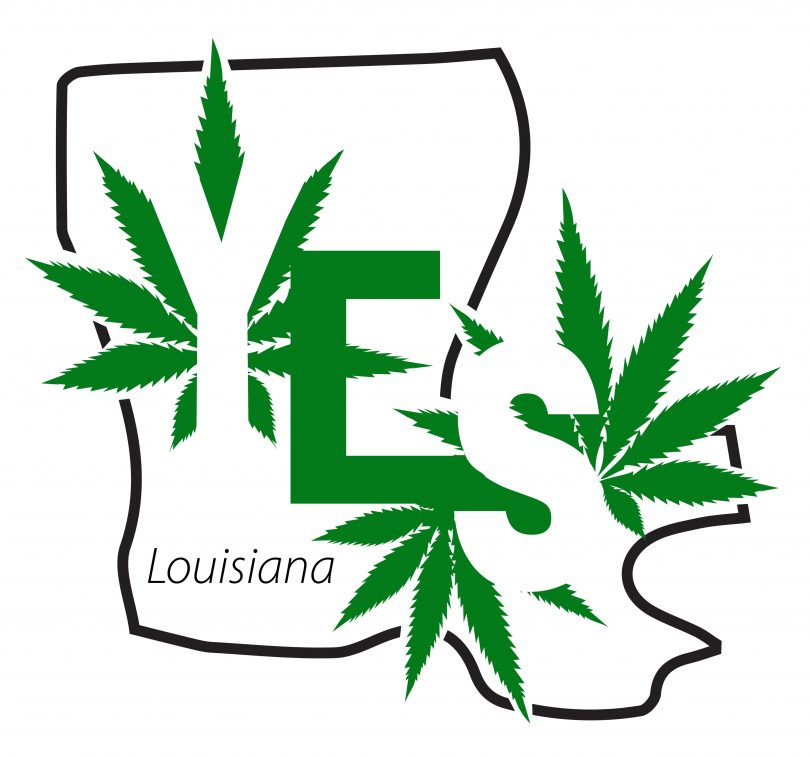Now that there are different kinds of THC that are known about, like delta-8 and delta-10 THCs, governments have been changing words in their laws to find ways to regulate all of it. Some US states have explicitly banned delta-8 as a synthetic, while others, like Louisiana, count it as a part of total THC. Louisiana, by regulating it this way, makes a delta-8 THC market very hard.
Louisiana adopted a recent cannabis update, which causes issues for the delta-8 THC industry, but is otherwise a good thing that should keep more people out of jail. Delta-8, of course, is a great alternative to delta-9, providing users with a slightly less intense high, without the anxiety, paranoia, or couch locking associated with delta-9. This makes it preferable for many people. We want to get you your product of choice ASAP, so take a look at our awesome delta-8 THC deals, and see why so many cannabis aficionados are going the d8 route. Other delta-9 alternatives are THCV, THC-O, Delta-10 THC & THCP. Subscribe to the Delta 8 Weekly to learn more about your available choices.
Louisiana and HBs 652 and 640
What Louisiana did is technically a good thing, even if it doesn’t work out for the entire cannabis industry, and I think it’s important to understand this first. On June 14th, 2021, Louisiana Governor John Bel Edwards signed HB 652 into law. This law decriminalizes up to 14 grams of cannabis, making a punishment of $100, with no threat of jail time. This goes for the first, and all subsequent, infractions. Those unable to pay this amount can be offered an alternative like paying in installments, or community service. This decriminalization goes into effect on August 1st, 2021, however, being caught with more than this amount will still incur much harsher criminal penalties.
To give an idea of how much this should improve things in Louisiana, consider that the current criminal punishment for having less than 14 grams of cannabis, is up to 15 days in prison. Even with only convictions for simple possession charges, four of these can garner an individual eight years in prison. This, by the way, will remain the punishment for those charged a fourth time with having over 14 grams, after the new law goes into effect. This law should greatly help reduce convictions for minor cannabis crimes though.
The other cannabis related bill to get signed off on recently, was HB 640, also set to go into effect on August 1st, 2021. HB 640 is a hemp law, and has to do with lessening restrictions, in light of the fact that hemp is a big industry in the state of Louisiana. The new law does a few things, like:
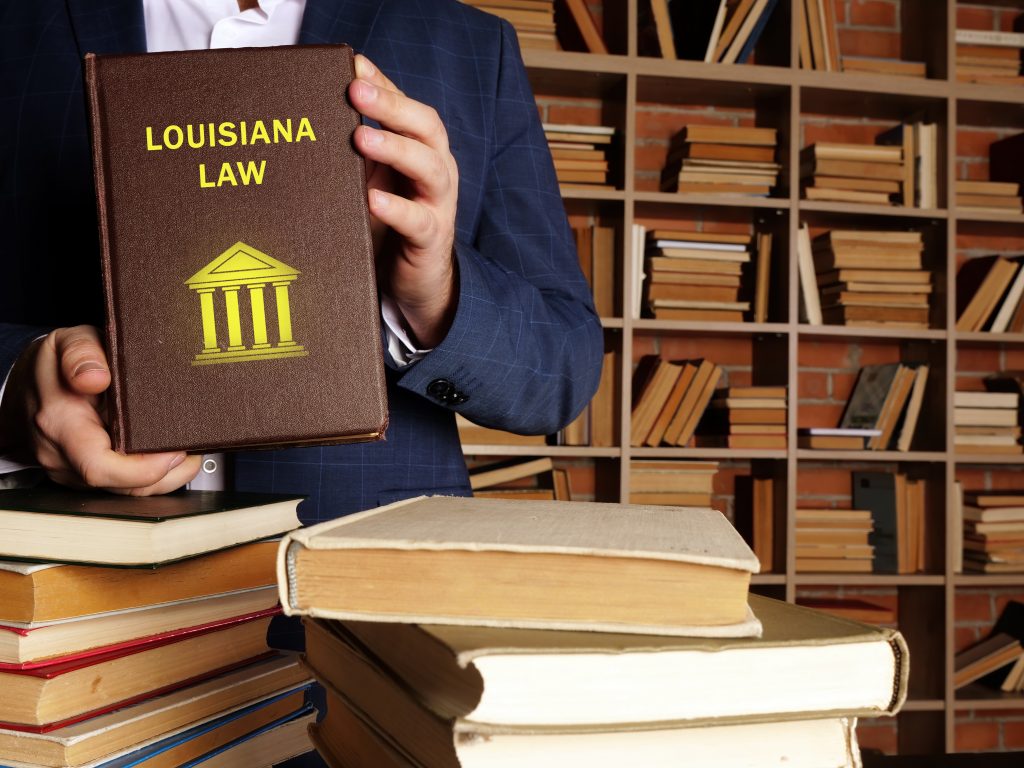
- Updates current laws to allow licenses for storage, possession, trimming and curing of industrial hemp. Technically, a license for this was already necessary, but the updated ‘handler license’ is easier to get and more expansive in what it allows.
- Updates language by taking out “industrial hemp-derived CBD product” and replaces it with “consumable hemp product”. What this provision also does, is prohibit the sale of hemp products for consumption that contain any cannabinoid not found in nature. We’ll get to how this effects delta-8 THC soon.
- Institutes permit requirements for production and sale of consumable hemp products, which costs up to $50. This provision also attaches civil penalties to those caught selling these products without the correct permits.
- Stipulates that all consumable hemp products must contain no more than .3% delta-9 THC (in line with Federal regulation), or, to not have above a 1% ‘total THC’ level. We’ll get to what this means for delta-8 soon.
- Provides the penalty for unlicensed processing of consumable hemp products, which is quite intense. Up to 20 years in prison, and a fine up to $50,000.
- Puts a requirement on CBD products to have an excise tax.
- Promotes research and development of cannabis, specifically citing the University of Louisiana Monroe Agribusiness Program, giving it the ability to cultivate and process industrial hemp in connection to research purposes, which also comes with an exemption for licensing requirements.
NEW: SUPER-SATIVA THC-O
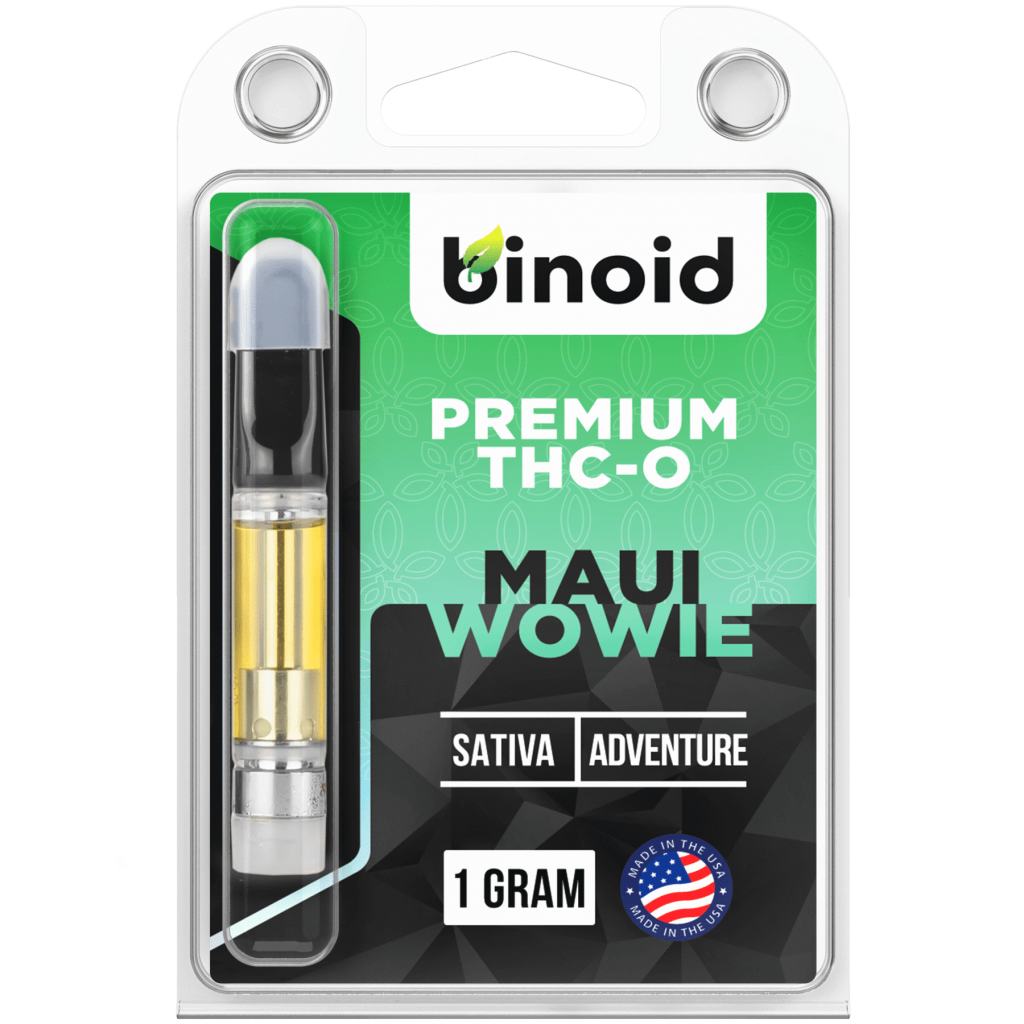
How does HB 640 effect delta-8 THC?
This is where things get a bit more specific, and these specificities directly effect the delta-8 industry. Louisiana HB 640 has two provisions that will likely have a negative effect on the delta-8 THC market.
1 – The first is the prohibition of consumable hemp products that contain non-naturally occurring cannabinoids. While delta-8 THC is naturally occurring as a result of oxidation of delta-9 THC, this happens in tiny amounts only, requiring a need for human processing help in order to produce large enough amounts to use in products. This plays into the debate already going on federally with delta-8, since it is both naturally occurring, yet must be synthesized for use in products. It is unclear how this provision effects delta-8, since it depends on the definition of delta-8 when it undergoes human synthetization help.
2 – The more damning provision actually does make a fair amount of sense, and regardless of its effect on delta-8 THC, it has a profoundly worse impact on non-decarboxylated products that have a high amount of the precursor cannabinoid acid THCA. This provision is about the definition of ‘total THC’, meaning the total amount of all the different THCs together.
NEW: DELTA 10 THC
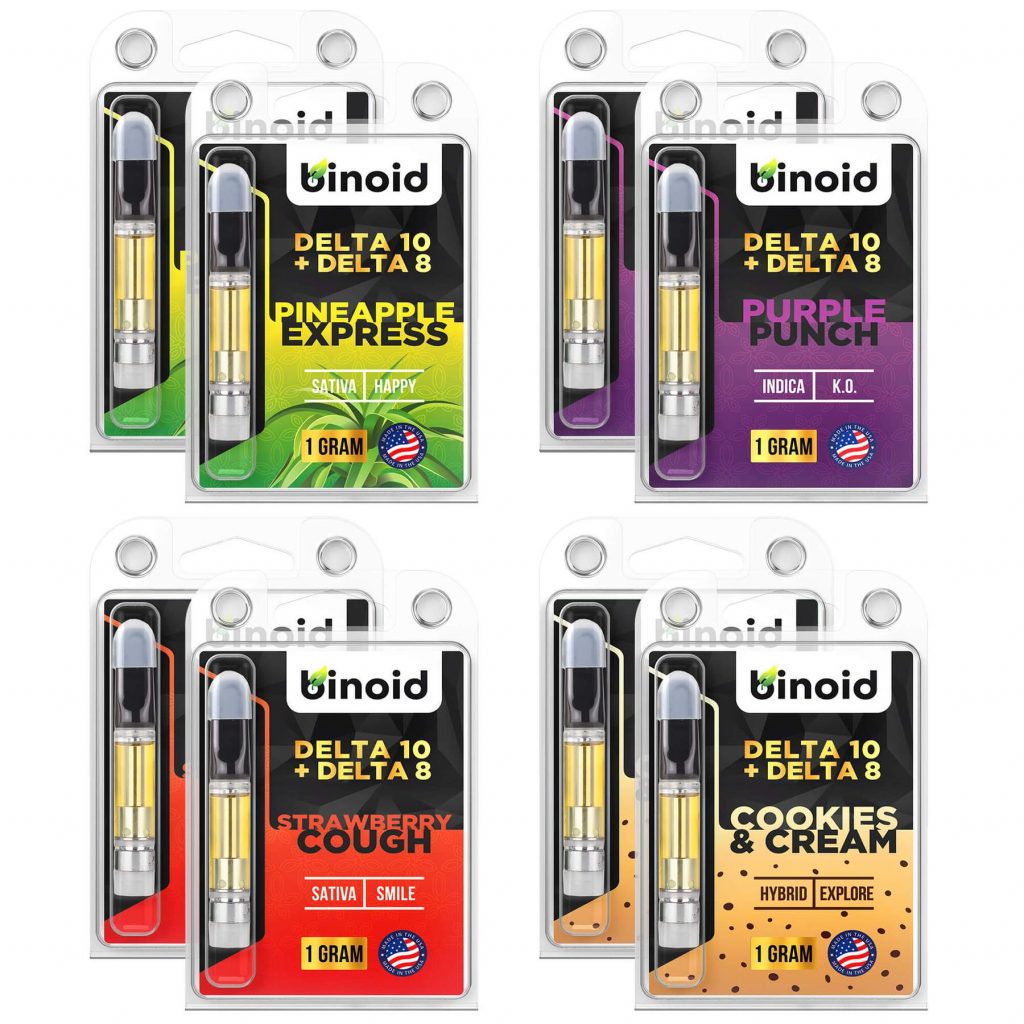
Have you tried Delta 10 THC?
Click HERE to see the products
- The idea of ‘total THC’ means that all tetrahydrocannabinols are considered, and this extends to all delta THCs (delta-8, delta-9, delta-10), as well as precursor acid THCA. THCA, however, does not produce a psychoactive high, and is therefore being added to a category of ‘high-inducing’ compounds, when it explicitly does not cause a high. This will rule out products like raw hemp juice if the THCA level reaches above 1%, and that means criminalizing a part of the plant which is only used medicinally.
- This idea of ‘total THC’ does two things to delta-8 THC. First it explicitly does NOT ban it, it simply treats it the same way as it treats delta-9, and this – like it or not for producers and vendors – is fair. What it also does, is close any ability for a delta-8 THC market outside of the laws that govern delta-9 THC. So, if it can’t be done with delta-9, it also can’t be done with delta-8. On the other hand, if it can be done with delta-9, then it also can be done with delta-8. While some states like Colorado have explicitly banned delta-8 (using the definition of synthetic to do so), Louisiana’s provision actually keeps it at the same level of legality/illegality as delta-9.
- The takeaway here is that, under the new Louisiana update, no delta-8 THC market can legally exist, except for where delta-9 already has legality (like the definition of ‘hemp’). However, the new law also keeps it from being completely criminalized apart from delta-9, since it regulates them together. The one thing to keep in mind is that, should it be considered a synthetic, the ‘total THC’ aspect no longer applies, and its just illegal. Since it’s specifically being regulated with delta-9, it doesn’t seem like that’s the thinking, but this could change. The bigger issue with what Louisiana did, is not about delta-8 THC, but the fact that it works to rule out THCA products, which are not meant for getting high.
What is delta-8 and does this matter?
Delta-8 THC is a half-brother of delta-9, sharing the same chemical formula of: C₂₁H₃₀O₂, but with a slightly different configuration of atoms. Delta-8 is therefore an isomer and an analogue of delta-9. Though the two are nearly structurally identical, and offer nearly identical medical benefits, there are some key differences between the compounds which set them apart.
There are a few things that can make delta-8 a preferable option to delta-9. The first is that it has been known to produce less psychoactive high in testing, approximately 2/3 the high of delta-9. The high it does create is associated with leaving the user in a more clear-headed mode with a higher energy level, and less couch locking effect. And it isn’t known to produce the same anxiety and paranoia often associated with delta-9 THC.
These three factors: less high, more clear-headed and energetic high, and less anxiety and paranoia, create a different experience from delta-9 for many users. Especially for medical patients who would prefer to feel less psychoactive effects, delta-8 becomes the much better choice. This is also true for recreational smokers who have a hard time with delta-9 related anxiety.
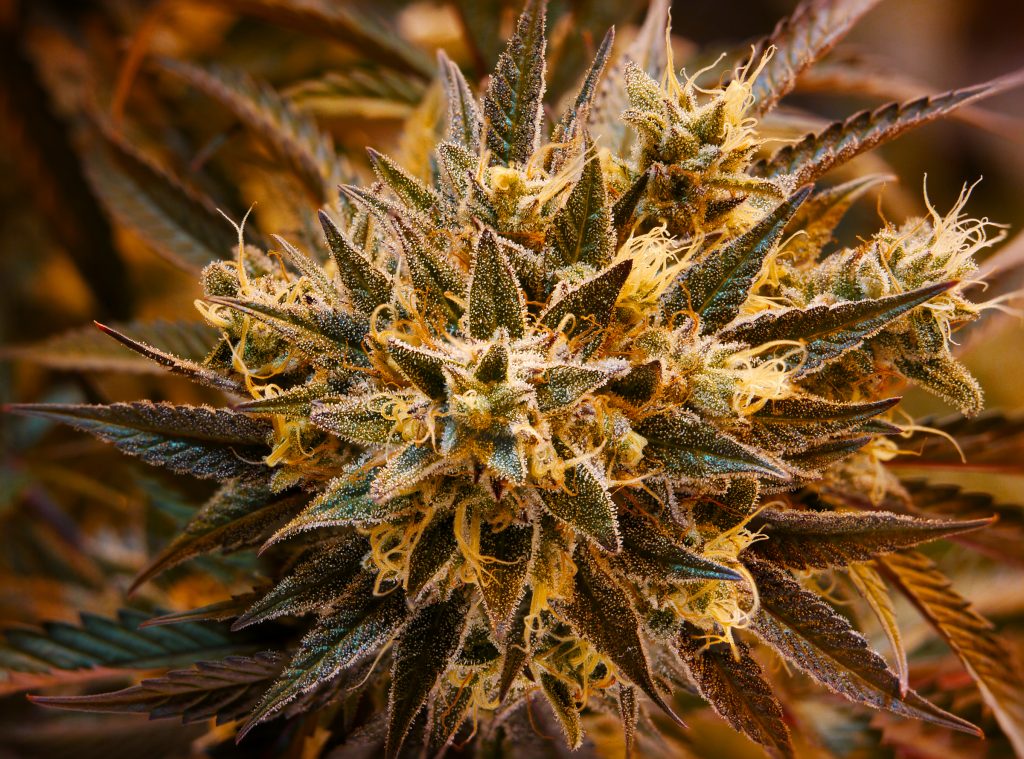
We wouldn’t be talking about delta-8 if not for the most recent Farm Bill (2018), which legalized the production and cultivation of industrial hemp, creating what looked like a loophole to sell legal THC. Though this loophole is certainly debatable, it doesn’t seem like it ever really existed, being used more as a marketing scheme to get products out there. Delta-8 has been on the DEA’s Controlled Substances list for quite some time, it acts as an analogue to delta-9, making it illegal under the Federal Analogue Act, and its an isomer of delta-9, which technically makes it regulated the same way in terms of the definition of hemp.
Delta-8 has not shown to be dangerous, much like delta-9, but since it can require harsh chemicals in the synthetization process, this idea has been used as a way to ban it, with states insisting that if safety can’t be controlled, that the compound can’t be sold. This can be seen in Colorado‘s reasoning for disallowing delta-8. Of course, all kinds of concentrates exist that require the use of harsh chemicals, so the logic is very much flawed. And its flawed again in that this would only require regulating what chemicals can be used, making a full ban completely unnecessary. Even so, for whatever reason, that’s what’s happening.
My guess is that it comes down to two factors. The first being that this is a great medical – and therefore pharmaceutical – product, and this hesitation to allow it, leaves the door open for it to be big in the pharmaceutical market. The other thing to consider though, is that the US government (and local governments) probably understand how little ability they have to actually regulate where and how it gets made (since it can be made in a house, like meth or crack), meaning they can’t ever really control the industry, with their best bet being what they’re doing now, attempting to stop the above-board market.
NEW: THC-O Products
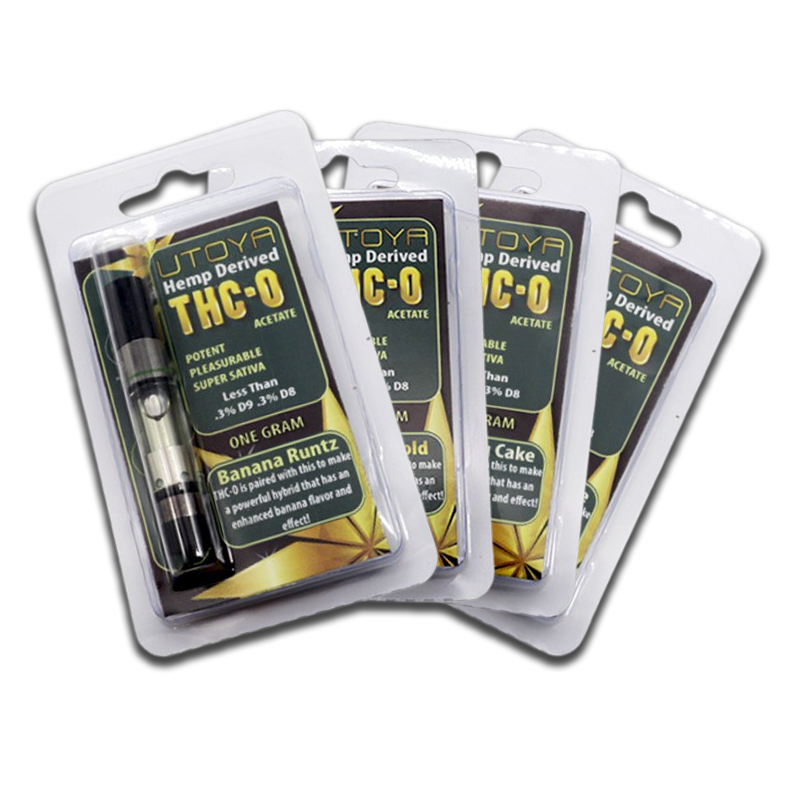
Have you tried THC-O?
Click HERE to see the products
Recent attempts to enforce some kind of ban/regulation, have helped government entities to keep a competing product off the market (since government bodies can’t earn money from unregulated industries). It also shows a glaring understanding that they really can’t do anything about it. Hence the fact that debates about it exist, and laws are updated, while almost no one is actually getting arrested for producing, selling, or using these products (with a few minor exceptions).
Conclusion
It’s hard to say that what Louisiana did was bad, even if it effects the delta-8 THC market. In fact, it’s a move of progress all the way. A deep south state that just decriminalized marijuana, and widened the door for industrial hemp production. While it doesn’t do anything to help delta-8 THC, this is – I believe – secondary to the fact that these new provisions will hep decrease prison sentences, and allow recreational use, even if only in a decriminalized fashion. All in all, good job Louisiana. Just maybe rethink that ‘total THC’ thing.
Welcome to CBDtesters.co, the #1 internet location for the most up-to-date cannabis-related news worldwide. Check us out daily to stay abreast of the quickly changing world of legal marijuana, and sign up to receive our newsletter, so you always know what’s happening.
Disclaimer: Hi, I’m a researcher and writer. I’m not a doctor, lawyer, or businessperson. All information in my articles is sourced and referenced, and all opinions stated are mine. I am not giving anyone advise, and though I am more than happy to discuss topics, should someone have a further question or concern, they should seek guidance from a relevant professional.


